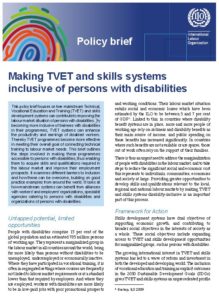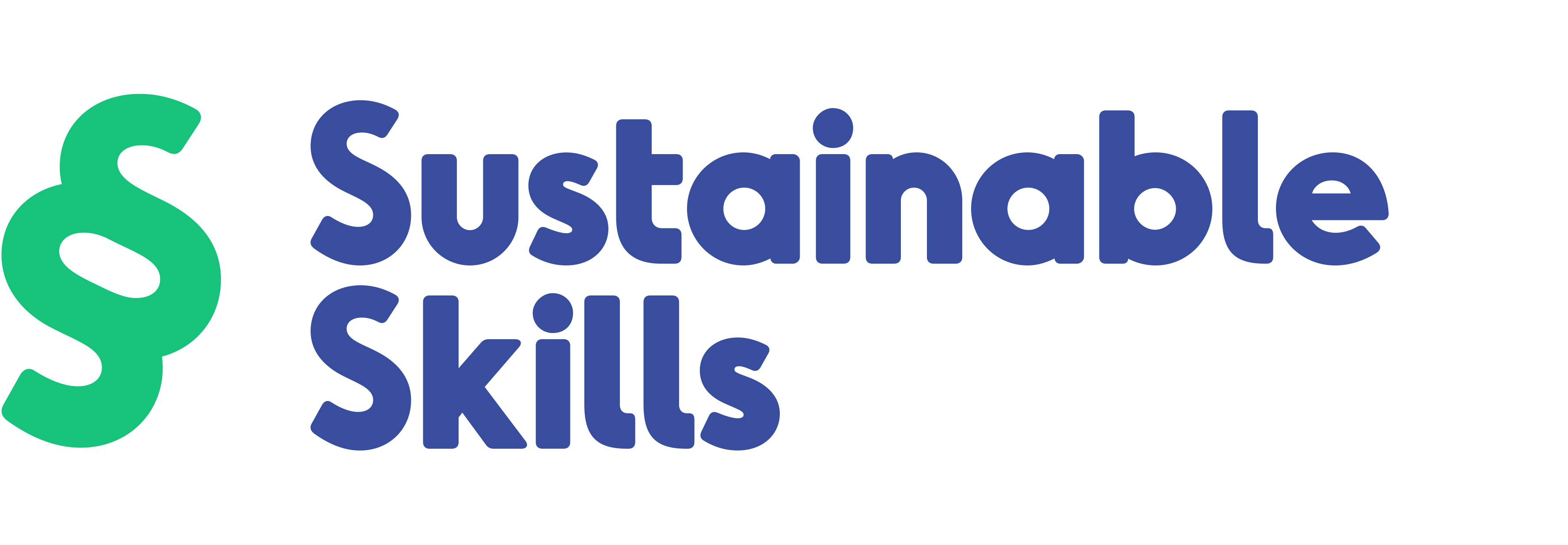Policy brief: Making TVET and skills systems inclusive of persons with disabilities

This document recently issued by the International Labour Organisation (ILO), the U.N. agency based in Geneva that sets labour standards, develops policies and devises programmes promoting decent work for all, outlines the steps involved in making TVET and skills development systems accessible to persons with disabilities.
According to ILO, people with disabilities comprise 15 per cent of the global population and an estimated 785 million persons of working age. They represent a marginalized group in the labour market in all countries around the world, being far more likely to be unemployed or underemployed. Their labour market situation entails social and economic losses which have been estimated by the ILO to be between 3 and 7 per cent of GDP.
There is a urgent need to address the marginalization of people with disabilities in the labour market, and to take steps to reduce the significant social and economic cost this represents to individuals and society at large. TVET systems can play a crucial role in this process by enabling people with disabilities to acquire skills and qualifications required in the labour market and improve their employment prospects.
The inclusion of vocational education and training as explicit outcomes in the 2030 Sustainable Development Goals (SDGs) gives TVET and skills systems an unprecedented profile on the international stage. The SDGs include a target of ensuring equal access to vocational training at all levels for persons with disabilities along with other vulnerable groups (Target 4.5).
The policy brief outlines a number of actions to effectively promote the inclusion of people with disabilities in TVET programmes:
- an enabling policy or strategy should be put in place mistaken assumptions about the abilities and capabilities of persons with disabilities should be challenged;
- buildings and transport should be made accessible;
- entry criteria, teaching methods, materials and evaluation methods should be reviewed and adapted;
- TVET workforce capacity to teach trainees with disabilities alongside non-disabled trainees should be
strengthened; - operational alliances should be formed with key partners;
- a system of on-going support to inclusion, including reasonable accommodation, should be developed;
- the effectiveness of the policy or strategy should be regularly monitored and reviewed; and
- resources should be allocated to make these changes
possible.
The document provides best practices adopted by various countries to increase access to TVET for people with disabilities, including the Australian Apprenticeships Incentives Programme providing a range of assistance to support apprentices with disabilities, and the itinerant support teachers, with specialist expertise in areas such as hearing and/or vision impairment, early intervention, autism and behavioural disorders, can be provided in NSW to assist students with disabilities and their class teachers.

